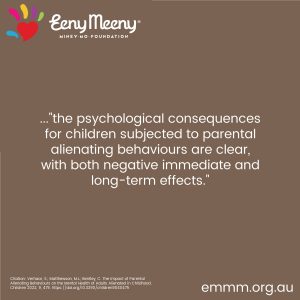| Opinion Date: March 12, 2024
Areas of Law: Family Law, Mental Health Law |
| This case involves an appeal against a judgment from the Montana Eighteenth Judicial District Court, Gallatin County, which committed the appellant, G.M., into the custody and care of the Montana State Hospital (MSH) for involuntary mental health treatment. The key issue at hand is whether the District Court erroneously found that G.M. was unable to adequately care for her own basic needs and safety based on hearsay statements made by her husband through the testimony of a court-appointed professional.
G.M., aged 66 at the time of the petition for involuntary mental health commitment in 2021, was alleged to be suffering from a diagnosed psychotic mental disorder. G.M.’s husband’s statements, along with her own behavior and assessments from mental health professionals, were the basis for the court’s decision. G.M.’s counsel repeatedly objected to the court-appointed professional’s testimony regarding her husband’s out-of-court statements, but these objections were overruled. G.M. testified on her own behalf, denying having a mental disorder or requiring treatment. Despite this, the District Court found that due to her diagnosed schizophrenic and delusional mental disorder, G.M. was “substantially unable to provide for her own basic needs of food, clothing, shelter, health, or safety.” On appeal, the Supreme Court of the State of Montana affirmed the judgment of the lower court. The court found that the lower court’s decision was not clearly erroneous and was supported by substantial admissible evidence. The court stated that the hearsay statements of G.M.’s husband were admissible under the rules of evidence to explain the underlying rationale for the court-appointed professional person’s expert opinion. The court also noted that the judgment was independently supported by the professional person’s personal observations and opinions on G.M.’s condition and ability to care for her own needs and safety. |
Articles Posted in Clinical Issues in Divorce
Illinois Divorce: Why are Traditional Therapies Worse than Worthless for Parental Alienation?
In my practice, I have the privilege of working with parents who are the targeted end of a toxic alienation campaign. The above video highlights the importance of the reintegration therapist, with the reminded that there are very few clinicians that actually have the training and experience to work with “brainwashed” children.
“A therapist that’s going to be helpful to an alienated parent and their damaged children here should have clinical and research experience, at least to know the research completely, and be able to differentiate the weak studies from the strong studies. They also should have a lot of grassroots experience in working with families in high-conflict divorces and forensics. They should be able to have expertise, whether it’s forensic sociology or forensic psychology.
Illinois Divorce: Emotional Impact of Divorce on Children
Why the First Year Is the Toughest
As you might expect, research has found that kids struggle the most during the first year or two after the divorce. Kids are likely to experience distress, anger, anxiety, and disbelief.
Illinois Divorce: Inaccuracies in Challenging Parental Alienation
The Parental Alienation Study Group has completed a thorough critique of a book that has been published seeking to discount the reality of Parental Alienation. PASG has done a thorough and clinically sound debunking of this book, and the review published by PASG is worth reading by any clinician or legal professional involved in PA mitigation. https://pasg.info/app/uploads/2023/04/Analysis-of-Mercer-Drew-2023-04-04.pdf
A Comprehensive Review of Misinformation and Other Inaccuracies in Challenging Parental Alienation: New Directions for Professionals and Parents
Created by Parental Alienation Study Group
Illinois Divorce Lawyer: Dealing with High Conflict Personalities (HCPs)
In my law practice, a number of issues that come up with divorce and child custody matters are focused around a spouse with a High Conflict Personality. HCPs can make a divorce and child custody case difficult to the point of being traumatic, and it is so important to have a lawyer that understands these personality types, and has management strategies for dealing with HCPs in the courtroom. Attorney and HCP expert Bill Eddy offers a podcast on the link below, along with some appropriate advice:
” Here are four of the biggest mistakes when dealing with HCPs:
Trying to give them insight into their own behavior
Illinois Divorce Lawyer: PASG and DSM
One of the longstanding issues in dealing with Parental Alienation within the clinical community, as well as with the legal community, has been the inclusion of Parental Alienation diagnostics in the DSM. An important group (of which I am proud to be a member) is the Parental Alienation Study Group.
Parental Alienation Study Group, Inc. (PASG), is an international, not-for-profit corporation. PASG has 800 members – mostly mental health and legal professionals – from 62 countries.
PASG is an organization open to anyone who reports an interest in the topic of parental alienation—personally, professionally, or both. Membership in PASG does not signify approval of the individual by the PASG Board of Directors, nor does it indicate any special education, training, expertise, or credentialing regarding parental alienation.
Illinois Divorce Lawyer: Malignant Narcissists
What Are the Signs of a Malignant Narcissist?
Malignant narcissists tend to display some of the worst traits of both APD and NPD, and often have severe dysfunctions in their personal relationships, work, and ability to function in other areas of life.
Their reckless behavior, disregard for others, and inability to form lasting healthy relationships with others can make them easier to spot than people with fewer traits or more mild or ‘covert’ forms of narcissism.
The Impact of Parental Alienating Behaviors
The Impact of Parental Alienating Behaviors on the Mental Health of Adults Alienated in Childhood

 Illinois Divorce Lawyer Blog
Illinois Divorce Lawyer Blog

